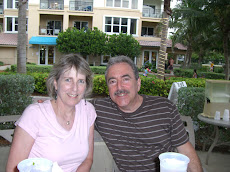 Today I am looking at the life of Isaac Newton, as I saw a program on his life and was reminded what a remarkable intellect he had, what a genious he was.
Today I am looking at the life of Isaac Newton, as I saw a program on his life and was reminded what a remarkable intellect he had, what a genious he was.So something about Newton:
Newton's greatest achievement was his work in physics and celestial mechanics, which culminated in the theory of universal gravitation. By 1666 Newton had early versions of his three laws of motion. He had also discovered the law giving the centrifugal force on a body moving uniformly in a circular path. Newton explained a wide range of previously unrelated phenomena: the eccentric orbits of comets, the tides and their variations, the precession of the Earth's axis, and motion of the Moon as perturbed by the gravity of the Sun.
Newton practiced alchemy with a passion. Though he wrote over a million words on the subject, after his death in 1727, the Royal Society deemed that they were not fit to be printed. The papers were rediscovered in the middle of the twentieth century and most scholars now concede that Newton was first an foremost an alchemist. It is also becoming obvious that the inspiration for Newton's laws of light and theory of gravity came from his alchemical work.
As a practicing alchemist, Newton spent days locked up in his laboratory. Perhaps that explains one of the oddest things about his life. At the height of his career, instead of accepting a professorship at Cambridge, he was appointed Director of the Mint with the responsibility of securing and accounting for England's repository of gold.
For the "secret writings" made it clear that during the crucial part of Newton's scientific career - the two decades between his discovery of the law of gravity and the publication of his masterwork, the "Principia Mathematica" - his consuming passion was alchemy. Bunkered in his solitary live-in lab at the edge of the fens near Cambridge, Newton indulged in occult literature and strove to cook up the legendary "philosopher's stone" that would convert base metals into gold.
For the "secret writings" made it clear that during the crucial part of Newton's scientific career - the two decades between his discovery of the law of gravity and the publication of his masterwork, the "Principia Mathematica" - his consuming passion was alchemy. Bunkered in his solitary live-in lab at the edge of the fens near Cambridge, Newton indulged in occult literature and strove to cook up the legendary "philosopher's stone" that would convert base metals into gold.
And a penchant for the occult was not Newton's only quirk. He is reported to have laughed just once in his life-when someone asked him what use he saw in Euclid. He took to decorating his rooms in crimson. He stuck a knife behind his eyeball to induce optical effects, nearly blinding himself. He was a Catholic-hating Puritan who secretly subscribed to the Arian heresy, which denied the divinity of Christ.
I am facinated by genius and insanity. Edgar Allen Poe wrote: "Men have called me mad, but the question is not yet settled, whether madness is or is not the loftiest intelligence--whether much that is glorious whether all that is profound - does not spring from disease of thought--from moods of mind exalted at the expense of the general intellect. Those who dream by day are cognizant of many things which escape those who dream only by night."
William James wrote: "When a superior intellect and a psychopathic temperament coalesce we have the best possible condition for the kind of effective genius that gets into the biographical dictionaries. Such men do not remain mere critics and understanders with their intellect. Their ideas posses them, they inflict them, for better or worse, upon their companions of their age"
Edvard Munch wrote: "I want to keep those sufferings." He said that emotional torments "are part of me and my art. They are indistinguishable from me, and it would destroy my art."
That's all for today - but a topic to explore more!



No comments:
Post a Comment